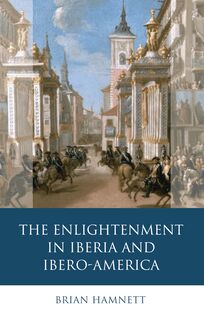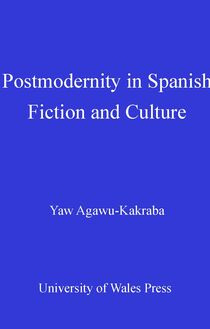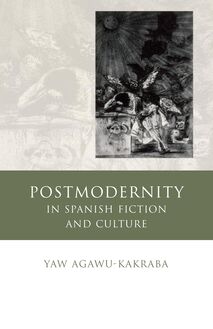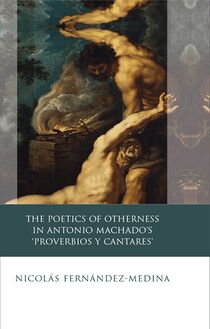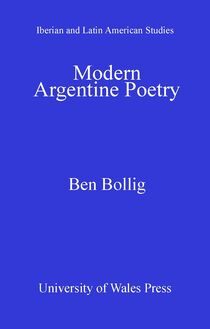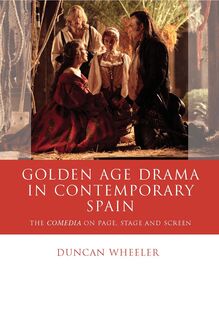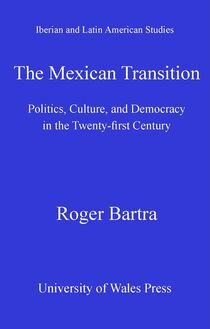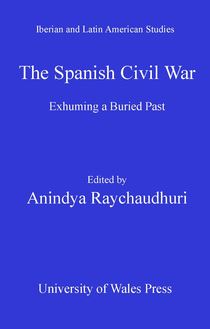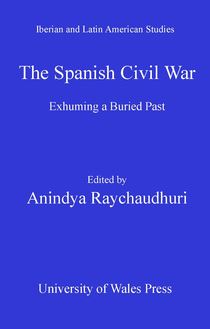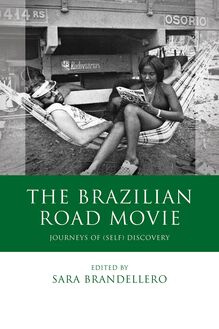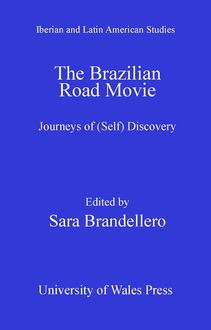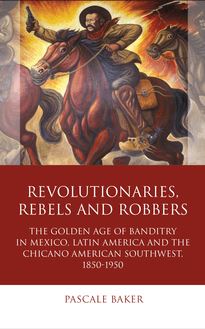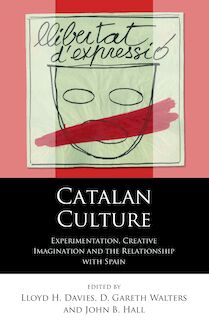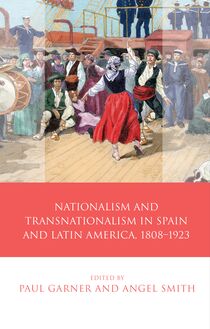-
 Univers
Univers
-
 Ebooks
Ebooks
-
 Livres audio
Livres audio
-
 Presse
Presse
-
 Podcasts
Podcasts
-
 BD
BD
-
 Documents
Documents
-
- Cours
- Révisions
- Ressources pédagogiques
- Sciences de l’éducation
- Manuels scolaires
- Langues
- Travaux de classe
- Annales de BEP
- Etudes supérieures
- Maternelle et primaire
- Fiches de lecture
- Orientation scolaire
- Méthodologie
- Corrigés de devoir
- Annales d’examens et concours
- Annales du bac
- Annales du brevet
- Rapports de stage
La lecture à portée de main
Découvre YouScribe en t'inscrivant gratuitement
Je m'inscrisThe Tlatelolco Massacre, Mexico 1968, and the Emotional Triangle of Anger, Grief and Shame , livre ebook
Découvre YouScribe en t'inscrivant gratuitement
Je m'inscrisEn savoir plus
En savoir plus

Description
In the aftermath of major violent events that affect many, we seek to know the ‘truth’ of what happened. Whatever ‘truth’ emerges relies heavily on the extent to which any text about a given event can stir our emotions – whether such texts are official sources or the ‘voice of the people’, we are more inclined to believe them if their words make us feel angry, sad or ashamed. If they fail to stir emotion, however, we will often discount them even when the reported information is the same. Victoria Carpenter analyses texts by the Mexican government, media and populace published after the Tlatelolco massacre of 2 October 1968, demonstrating how there is no strict division between their accounts of what happened and that, in fact, different sides in the conflict used similar and sometimes the same images and language to rouse emotions in the reader.
Acknowledgements
Introduction: ‘2 October Is Not Forgotten’
‘And All This Happened to Us’: Events of the Night of 2 October in the State and Public Discourses
Affect and Reason: Analysis of the Massacre in the State and Public Discourses
‘Unfortunate and Sad Fate’: Emotional Reaction to the Massacre in the State and Public Discourses
Conclusion: The Symbolic Value of ‘2 October’ Is Not Forgotten
Bibliography
List of Tables
Table 1. Points of agreement, contention and grey areas in the state discourse (Ch. 2)
Table 2. Points of agreement, contention and grey areas in the public discourse. (Ch. 2)
Table 3. Archive components and associated emotions. (Ch. 5)
Sujets
Informations
| Publié par | University of Wales Press |
| Date de parution | 06 août 2018 |
| Nombre de lectures | 0 |
| EAN13 | 9781786832818 |
| Langue | English |
| Poids de l'ouvrage | 4 Mo |
Informations légales : prix de location à la page 0,2174€. Cette information est donnée uniquement à titre indicatif conformément à la législation en vigueur.
Extrait
The Tlatelolco Massacre, Mexico 1968
Victoria Carpenter
and the Emotional Triangle of Anger, Grief and Shame: Discourses of Truth(s)
Tlatelolco_PB.qxp_Layout 1 02/07/2018 14:21 Page 1
‘The 2 October 1968 massacre in Tlatelolco (the Plaza de la Tres
Culturas) was a loss of innocence for the Mexican national imaginary.
The sustained act of state terrorism shattered forever the myth of a
benevolent socially and culturally stable society. Mexico has been
coming to terms ever since with the aftermath of that event. Cultural and
literary histories have generally adhered to versions provided by
antiestablishment sources. The enormous value of Carpenter’s examination
of pertinent textual production is the careful attention paid to the voices
of the defenders of the State, with the result that she has provided a far
more nuanced account than we are used to studying.’
Professor David William Foster, Arizona State University
In the aftermath of major violent events that affect many, we seek to know
the ‘truth’ of what happened. Whatever ‘truth’ emerges relies heavily on
the extent to which any text about a given event can stir our emotions –
whether such texts are official sources or the ‘voice of the people’, we are
more inclined to believe them if their words make us feel angry, sad or
ashamed. If they fail to stir emotion, however, we will often discount them
even when the reported information is the same. Victoria Carpenter
analyses texts by the Mexican government, media and populace published
after the Tlatelolco massacre of 2 October 1968, demonstrating how there
is no strict division between their accounts of what happened and that, in
fact, different sides in the conflict used similar and sometimes the same
images and language to rouse emotions in the reader.
VICTORIA CARPENTER is Associate Professor in Hispanic Studies at York The Tlatelolco Massacre,
St John University. She specialises in twentieth-century Mexican literature,
focusing on hegemonic and posthegemonic mechanisms of power distribution Mexico 1968in texts.
and the Emotional Triangle of Anger,
Grief and Shame: Discourses of Truth(s)
Cover image: Detention of students at Tlatelolco, 2 October 1968.
By permission, Rex Features, Shutterstock. www.uwp.co.uk
Victoria CarpenterGWASGPRIFYSGOLCYMRU
UNIVERSITY OFWALESPRESSIBERIAN AND LATIN AMERICAN STUDIES
The Tlatelolco Massacre, Mexico 1968, and the
Emotional Triangle of Anger, Grief and Shame
The Tlatelolco Massacre.indd 1 17/07/2018 09:02Series Editors
Professor David George (Swansea University)
Professor Paul Garner (University of Leeds)
Editorial Board
David Frier (University of Leeds)
Lisa Shaw (University of Liverpool)
Gareth Walters (Swansea University)
Rob Stone (University of Birmingham)
David Gies (University of Virginia)
Catherine Davies (University of London)
Richard Cleminson (University of Leeds)
Duncan Wheeler (University of Leeds)
Jo Labanyi (New York University)
Roger Bartra (Universidad Nacional Autónoma de México)
Other titles in the series
The Darkening Nation: Race, Neoliberalism
and Crisis in Argentina
Ignacio Aguiló
Catalan Culture: Experimentation, creative imagination
and the relationship with Spain
Lloyd Hughes Davies, J. B. Hall and D. Gareth Walters
Catalan Cartoons: A Cultural and Political History
Rhiannon McGlade
Revolutionaries, Rebels and Robbers: The Golden Age of
Banditry in Mexico, Latin America and the Chicano American
southwest, 1850–1950
Pascale Baker
Teresa Margolles and the Aesthetics of Death
Julia Banwell
Galicia, A Sentimental Nation
Helena Miguelez-Carballeira
The Brazilian Road Movie
Sara Brandellero
The Spanish Civil War
Anindya Raychaudhuri
The Tlatelolco Massacre.indd 2 17/07/2018 09:02IBERIAN AND LATIN AMERICAN STUDIES
The Tlatelolco Massacre,
Mexico 1968
and the Emotional Triangle of Anger,
Grief and Shame: Discourses of Truth(s)
VICTORIA CARPENTER
UNIVERSITY OF WALES PRESS
2018
The Tlatelolco Massacre.indd 3 17/07/2018 09:02© Victoria Carpenter, 2018
All rights reserved. No part of this book may be reproduced in any material
form (including photocopying or storing it in any medium by electronic
means and whether or not transiently or incidentally to some other use of
this publication) without the written permission of the copyright owner.
Applications for the copyright owner’s written permission to reproduce
any part of this publication should be addressed to the University of Wales
Press, 10 Columbus Walk, Brigantine Place, Cardiff CF10 4UP.
www.uwp.co.uk
British Library CIP
A catalogue record for this book is available from the British Library.
ISBN 978-1-78683-280-1
e-ISBN 978-1-78683-281-8
The right of Victoria Carpenter to be identifed as author of this work has
been asserted in accordance with sections 77 and 79 of the Copyright,
Designs and Patents Act 1988.
Typeset by Mark Heslington Ltd, Scarborough, North Yorkshire
Printed by CPI Antony Rowe, Melksham
The Tlatelolco Massacre.indd 4 17/07/2018 09:02To Michael and Samantha, with love and gratitude
The Tlatelolco Massacre.indd 5 17/07/2018 09:02Contents
List of Tables ix
Series Editors’ Foreword xi
Acknowledgements xiii
1 Introduction: ‘2 October Is Not Forgotten’ 1
2 ‘And All This Happened to Us’: Events of the Night of
2 October in the State and Public Discourses 30
3 Affect and Reason: Analysis of the Massacre in the State
and Public Discourses 91
4 ‘Unfortunate and Sad Fate’: Emotional Reaction to the
Massacre in the State and Public Discourses 135
5 Conclusion: The Symbolic Value of ‘2 October Is Not
Forgotten’ 177
Notes183
Bibliography221
Index233
The Tlatelolco Massacre.indd 7 17/07/2018 09:02List of Tables
Table 2.1: Points of agreement, contention and grey areas
in the state discourse 52
Table 2.2: Points of agreement, contention and grey areas
in the public discourse 88
Table 5.1: Archive components and associated emotions 181
The Tlatelolco Massacre.indd 9 17/07/2018 09:02Series Editors’ Foreword
Over recent decades the traditional ‘languages and literatures’
model in Spanish departments in universities in the United
Kingdom has been superseded by a contextual, interdisciplinary
and ‘area studies’ approach to the study of the culture, history,
society and politics of the Hispanic and Lusophone worlds –
categories that extend far beyond the confnes of the Iberian Peninsula,
not only in Latin America but also to Spanish-speaking and
Lusophone Africa.
In response to these dynamic trends in research priorities and
curriculum development, this series is designed to present both
disciplinary and interdisciplinary research within the general feld
of Iberian and Latin American Studies, particularly studies that
explore all aspects of Cultural Production (inter alia literature,
flm, music, dance, sport) in Spanish, Portuguese, Basque, Catalan,
Galician and indigenous languages of Latin America. The series
also aims to publish research in the History and Politics of the
Hispanic and Lusophone worlds, at the level of both the region and
the nation-state, as well as on Cultural Studies that explore the
shifting terrains of gender, sexual, racial and postcolonial identities
in those same regions.
The Tlatelolco Massacre.indd 11 17/07/2018 09:02Acknowledgements
I would like to thank the University of Wales Press for taking up this
project and making it successful. Sarah Lewis’s helpful advice and
quick responses to my (sometimes frantic) emails helped this
project come to fruition in time for the fftieth anniversary of the
massacre.
When this study was frst conceived, Jon Beasley-Murray’s work
on posthegemony inspired me to follow a different path in
structuring my book. A big thank you also goes to my students on the
Advanced Spanish pathway (University of Derby, 2005–8), who
were the sounding board for the initial glimpses of this study back
in 2007; my thanks go to Jasmine, Dominic, Alicija, Troy, Danielle,
Charles and others for their enthusiastic participation in the initial
discussions which led to an unexpected turn in the course the study
took. My PhD students – Vanessa and Lakhbir – bore the brunt of
my theoretical ruminations and, hopefully, benefted from it as
much as this project did (or more). My colleagues who shared my
interest in all things hegemonic and posthegemonic – Jill Hanson
and Dave Lees – were the source of new perspectives outside the
familiar Latin American context.
I would also like to thank York St John University for supporting
this project when I joined them in 2014. My fellow academics and
research students have heard several presentations on various
aspects of the project and shared my excitement (and occasional
frustration) at writing retreats. Particular thanks go to Mandy
Asghar, who urged me to continue and celebrated every success, no
matter how small, along with me. Scott Cole, Mark Dransfeld,
Charlotte Haines-Lyon, Lorna Hamilton, Cath Heinemeyer, Liesl
King, Becky Muradás-Taylor and others attending day and
overnight writing retreats inspired me to keep going.
The Tlatelolco Massacre.indd 13 17/07/2018 09:02xiv The Tlatelolco Massacre
I am grateful to my fellow Latin Americanists Peter Beardsell,
Mel Boland, Céire Broderick, Chris Harris, Stephen Hart, Adam
Sharman, Phil Swanson, Amit Thakkar and others, who asked
unexpected questions at conferences and in personal meetings and
welcomed equally unexpected answers. My friends in the Association
of Hispanists of Great Britain and Ireland and the Latin American
Literary Studies Association have watched the project take shape
over many conference papers and discussions that followed.
Raphael Ingelbien has witnessed this project from conception to
publication, offering light-hearted support and an occasional
shoulder along the way. My mother Svetlana’s encouragement kept
me focused on the task at hand.
My deepest gratitude is to my family for putting up with early
morning depar
-
 Univers
Univers
-
 Ebooks
Ebooks
-
 Livres audio
Livres audio
-
 Presse
Presse
-
 Podcasts
Podcasts
-
 BD
BD
-
 Documents
Documents
-
Jeunesse
-
Littérature
-
Ressources professionnelles
-
Santé et bien-être
-
Savoirs
-
Education
-
Loisirs et hobbies
-
Art, musique et cinéma
-
Actualité et débat de société
-
Jeunesse
-
Littérature
-
Ressources professionnelles
-
Santé et bien-être
-
Savoirs
-
Education
-
Loisirs et hobbies
-
Art, musique et cinéma
-
Actualité et débat de société
-
Actualités
-
Lifestyle
-
Presse jeunesse
-
Presse professionnelle
-
Pratique
-
Presse sportive
-
Presse internationale
-
Culture & Médias
-
Action et Aventures
-
Science-fiction et Fantasy
-
Société
-
Jeunesse
-
Littérature
-
Ressources professionnelles
-
Santé et bien-être
-
Savoirs
-
Education
-
Loisirs et hobbies
-
Art, musique et cinéma
-
Actualité et débat de société
- Cours
- Révisions
- Ressources pédagogiques
- Sciences de l’éducation
- Manuels scolaires
- Langues
- Travaux de classe
- Annales de BEP
- Etudes supérieures
- Maternelle et primaire
- Fiches de lecture
- Orientation scolaire
- Méthodologie
- Corrigés de devoir
- Annales d’examens et concours
- Annales du bac
- Annales du brevet
- Rapports de stage
